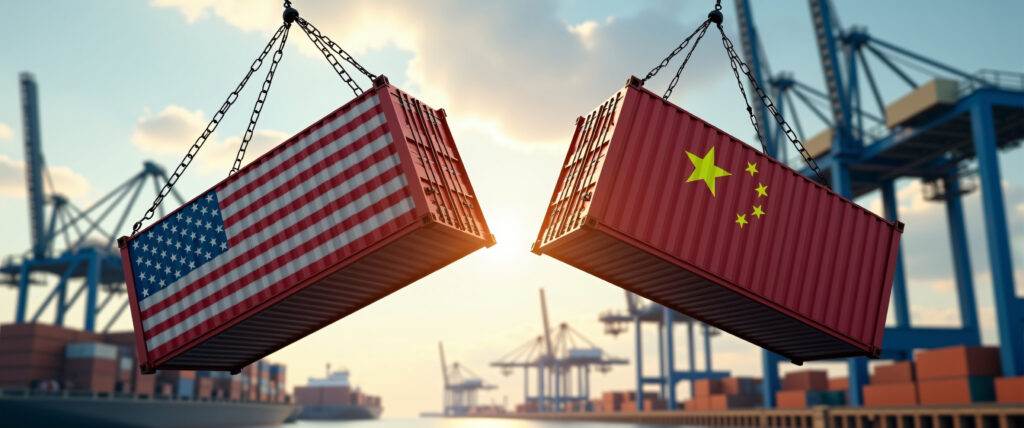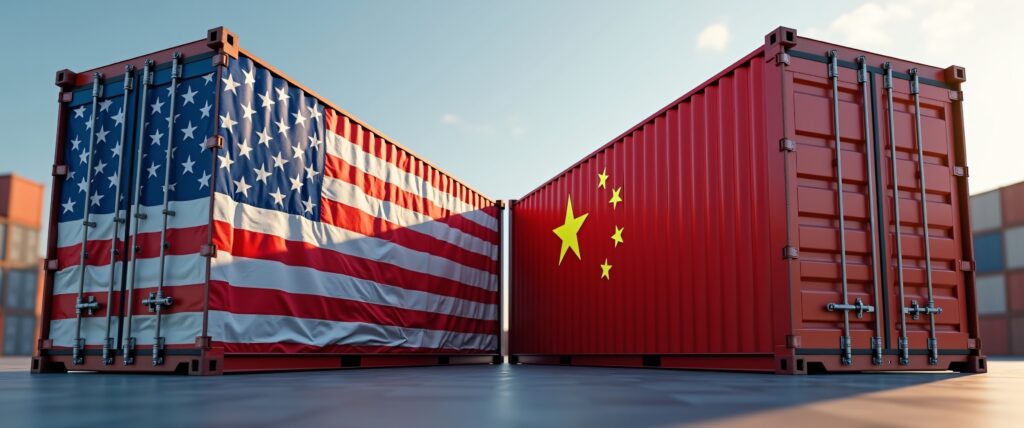Nearshore Breaking News: U.S. and China Temporarily Slash Tariffs for 90 days

In a surprising move aimed at easing escalating tensions, the U.S. and China have agreed to temporarily slash tariffs for 90 days, reducing rates from as high as 145% to 30%. The decision sparked an immediate rally in global markets and offers a narrow window of relief for small businesses that have been strained under the weight of extreme import costs. While the truce signals a possible thaw in trade relations, its short-term nature has left many business owners scrambling to make the most of the grace period, unsure of what will follow once the clock runs out.
Nearshore Breaking News Summary
- U.S. and China Agree to Temporarily Slash Tariffs from 145% to 30% for 90 days (NYT)
- Global Stocks Jump After U.S. and China Cut Tariffs (NYT)
- Tariffs are hurting small businesses and ‘Nobody in Power Seems to Care’ (WSJ)
- Even "Circular fashion" (resale and recycling) are impacted under Trump’s tariffs (Vogue Business)
U.S. and China Agree to Temporarily Slash Tariffs in Bid to Defuse Trade War
Published: May 12, 2025
Source: NYT
The U.S. and China have agreed to temporarily reduce their steep tariffs for 90 days as they pursue a resolution to their escalating trade war. The U.S. will lower its tariff on Chinese goods from 145% to 30%, while China will reduce its tariff on American imports from 125% to 10%. It’s still unclear if the pause will lead to a lasting agreement.
Key points:
- Tariff Rollback: The U.S. and China will reduce tariffs for 90 days — the U.S. cutting its rate to 30% from 145%, and China to 10% from 125%.
- Negotiation Restart: Treasury Secretary Scott Bessent and U.S. Trade Representative Jamieson Greer met with Chinese Vice Premier He Lifeng in Geneva; both sides agreed that a decoupling was undesirable.
- Economic Pressures: The trade war has already slowed exports, increased inflation risks, and disrupted supply chains; the tariff reduction aims to prevent deeper economic fallout.
- No Binding Deal Yet: While talks will continue, no binding agreement or commitments on trade imbalances or currency manipulation have been made. The truce remains temporary.
- Market & Business Impact: Global stock markets rallied on the news, but businesses are rushing to ship goods during the 90-day window, expecting continued volatility and potential shortages once the grace period ends.
Global Stocks Jump After U.S. and China Cut Tariffs
Published: May 12, 2025
Source: NYT
Global stock markets jumped after the U.S. and China agreed to a 90-day temporary reduction in tariffs. The move signaled a possible thaw in trade tensions and boosted investor confidence, lifting major indices and global shipping stocks.
Key points:
- Tariff Rollback: U.S. and China agreed to temporarily lower tariffs for 90 days while continuing negotiations.
- Market Rally: S&P 500 futures rose 3%, Nasdaq futures 4%, and Hong Kong’s Hang Seng surged 3%.
- Investor Relief: Markets reacted positively to clearer trade policy direction after weeks of uncertainty.
- Trade Exposure Gains: Stocks of global shipping giants like Maersk and Hapag-Lloyd rose over 10%.
- Economic Outlook Still Cautious: Despite the deal, the WTO and IMF warn that prolonged U.S.-China tensions could hurt global growth significantly.
How Tariffs Are Crushing Small Businesses: ‘Nobody in Power Seems to Care’
Published: May 11, 2025
Source: WSJ
Small businesses across the U.S. are being crushed by Trump’s 145% tariffs on Chinese imports, with many owners cutting staff, delaying shipments, and tapping personal finances to survive. Without the resources to shift supply chains or absorb steep costs, many fear closure.
Key points:
- Severe Financial Impact: Small businesses face tariff bills that exceed the value of their imports, with some orders taxed at 161%, forcing layoffs and canceled shipments.
- Lack of Support: Business owners report minimal guidance from the Small Business Administration and frustration with limited access to U.S.-based manufacturing alternatives.
- Uncertain Future: Many are delaying key decisions—like office leases or inventory orders—while hoping for a trade deal or exemptions that may not come.
- Personal Sacrifice: Founders are drawing on personal savings and assets, with some considering closing altogether as profit margins vanish.
- Tariffs Affect U.S. Manufacturing Too: Even American-made products are impacted if they rely on imported materials, like fabric or components from China.
Circular fashion faces its own challenges under Trump’s tariffs
Published: May 8, 2025
Source: Vogue Business
Circular fashion brands hoped resale and recycling would offer refuge from Trump’s tariffs, but the reality is more complicated. While secondhand goods avoid some duties, the industry still depends on imported tech, equipment, and logistics that are now more costly. Rising expenses, consumer uncertainty, and lack of government reinvestment threaten to stall progress toward sustainable fashion in the U.S.
Key points:
- Resale Boom — with Limits: Resale platforms like Eileen Fisher’s Renew and Thredup are seeing increased interest as tariffs make secondhand goods more attractive. However, resale businesses still rely on imported goods, tech, and packaging, making them susceptible to tariff-related costs.
- Vintage Sellers Hit Hard: Independent resellers like Tab Vintage and Absolutely Fabrics report rising costs, stalled shipments, and returned U.S. orders forcing them to absorb losses and undermining trust with customers.
- Recycling Faces Equipment Barriers: Textile recyclers depend on specialized machinery largely sourced from abroad. Tariffs on such equipment raise costs and risk slowing down the buildout of U.S. recycling infrastructure.
- Policy Without Investment: Industry leaders argue tariffs alone won’t revive U.S. fashion or sustainability — they must be paired with investments in domestic manufacturing and circular systems to be effective.
- Volatility Hurts Innovation: Without long-term policy stability, industrial planning, and financial support, companies fear investor pullback and stalled progress on building scalable circular fashion systems.
More blogs


